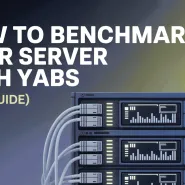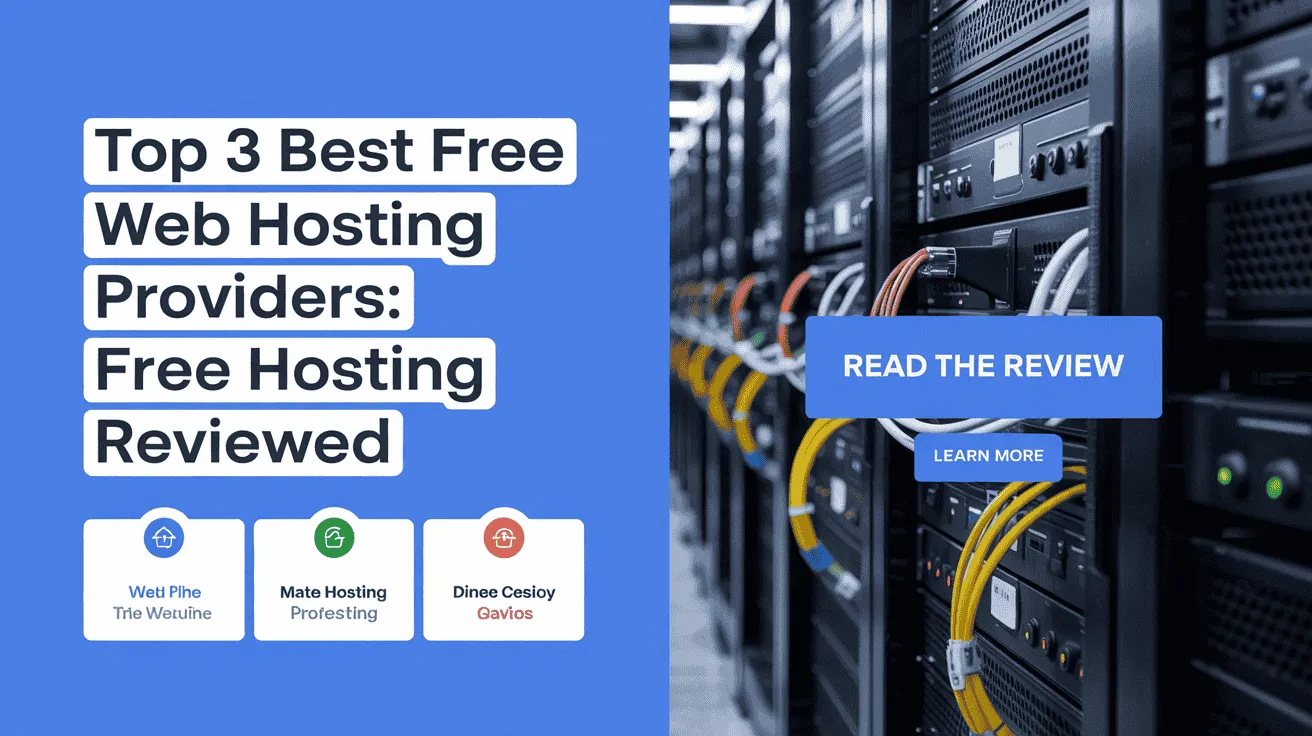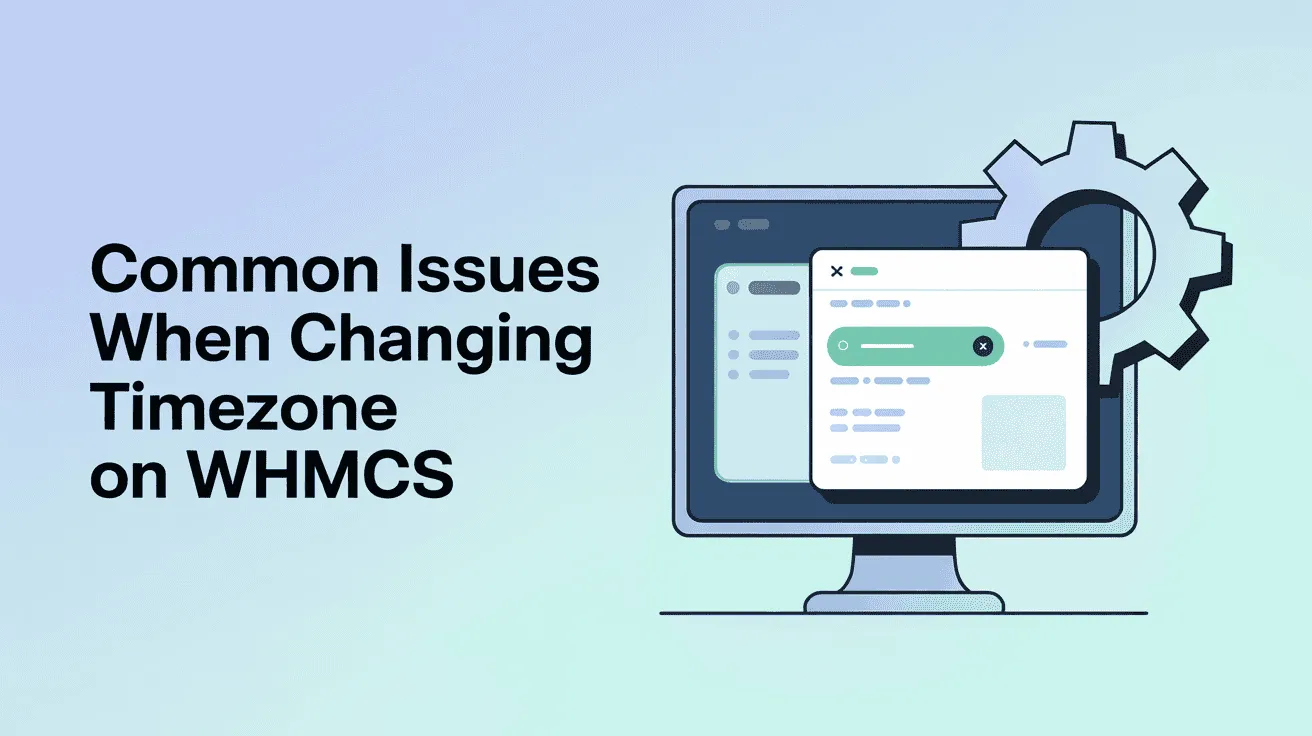The internet is always changing, and website owners are always on the lookout for better ways to improve speed, security, and overall performance. For years, Cloudflare has been one of the most popular choices for website protection and content delivery (CDN). But it’s not the only option anymore. In 2025, many strong competitors have entered the market, and each one brings something different to the table.
If you’re searching for the Best Cloudflare Alternative, you’ll find plenty of choices. Some services focus on faster speeds, others on stronger security, and some on flexible pricing that fits businesses of all sizes. The good news is that there’s no shortage of options. You can now pick the solution that matches your website’s unique needs.
In this article, we’ll go through the Top Alternatives to Cloudflare available in 2025. We’ll explain what makes them stand out, how they compare, and what possible downsides they may have. From well-established providers with a wide range of features to newer companies targeting specific needs, these services give you real choices.
Whether you run a small personal blog, an online store, or a large enterprise website, finding the Best Cloudflare Alternative is key to staying secure and keeping your site fast. Each of the Top Alternatives to Cloudflare offers unique strengths that can make a big difference in performance and reliability.
Our goal is to give you the knowledge you need to make the right decision. As you explore these options, you’ll see why choosing the Best Cloudflare Alternative could be the smartest move for your website this year. So let’s take a closer look at the Top Alternatives to Cloudflare in 2025 and see which one fits your needs the best.

Overview to Cloudflare :
Cloudflare is a company that helps websites run faster, safer, and more reliably. It acts as a Content Delivery Network (CDN), which means it stores copies of your website on servers all over the world so visitors can access your site quickly no matter where they are.
At the same time, Cloudflare also works as a security service. It protects websites from hackers, spam, and large cyberattacks (like DDoS attacks) that can crash a site. It also provides DNS (the system that connects website names to their servers), SSL certificates for HTTPS security, and tools that make websites load more smoothly.
In short, Cloudflare is both a speed booster and a security shield for websites, which is why millions of businesses, blogs, and online stores use it.
Cloudflare has long been a leading choice for content delivery network (CDN) services.

Key Features of Cloudflare :
Cloudflare offers a wide range of tools that improve both the speed and security of websites. Here are its main features:
- Content Delivery Network (CDN):
- Speeds up websites by storing cached content on global servers.
- DDoS Protection:
- Defends against large-scale attacks that try to take websites offline.
- Web Application Firewall (WAF):
- Blocks malicious traffic and hacking attempts.
- DNS Services:
- Provides one of the fastest and most secure DNS resolvers in the world.
- SSL/TLS Encryption:
- Ensures safe browsing with free HTTPS certificates.
- Load Balancing:
- Distributes traffic across servers to keep sites online during high demand.
- Image & Content Optimization:
- Reduces file sizes for faster page loading.
- Analytics:
- Gives insights into website performance and threats.
- Zero Trust Security:
- Protects internal apps and users without relying only on VPNs.
These features make Cloudflare one of the most reliable solutions for businesses and individuals who want a faster, safer, and more stable online presence.
Why Consider Alternatives to Cloudflare?
Cloudflare is no doubt a powerful platform, but it might not be the perfect fit for everyone. Different websites have different needs, and sometimes businesses look for services that provide more flexibility, unique features, or better pricing models. That’s where considering the Best Cloudflare Alternative becomes important.
Some common reasons people explore the Top Alternatives to Cloudflare include:

- Pricing Concerns – While Cloudflare has a free plan, advanced features often require expensive upgrades.
- Customization Needs – Some website owners want more control over settings, caching, or security options than Cloudflare allows.
- Performance in Specific Regions – In certain countries or regions, other CDNs may offer faster speeds or better infrastructure.
- Specialized Features – Alternatives may focus on unique tools like image optimization, developer-friendly APIs, or deeper analytics.
- Customer Support – Some businesses prefer providers known for more personalized or hands-on customer service.
- Scalability – Growing enterprises may find that other platforms handle large-scale traffic more efficiently.
In short, while Cloudflare is a trusted choice, exploring the Best Cloudflare Alternative or the Top Alternatives to Cloudflare can help you find a solution better tailored to your website’s needs and budget.
Top Best Cloudflare Alternatives for 2025 :
Here are some of the top Cloudflare alternatives for 2025, along with their strengths, weaknesses, and ideal use-cases. This should help you decide which one might be the Best Cloudflare Alternative or find among the Top Alternatives to Cloudflare for your needs.

Akamai: A Powerful Cloudflare Alternative
Akamai is one of the oldest and most trusted names in the CDN and website security industry. With thousands of servers spread across 130+ countries, it powers some of the world’s biggest brands, media companies, and enterprises. Built for speed, reliability, and top-notch security, Akamai is often the first choice for businesses that can’t afford downtime or performance issues.

Features of Akamai (What It Offers) :
Some of the key features Akamai provides include:
- Extensive Global Network & Deep Edge Presence :
- Servers often embedded in ISP networks, large number of PoPs, helps reduce latency especially in regions far from traditional cloud data centers.
- High Capacity & Scalability :
- Ability to handle huge traffic loads (streaming media, large scale web apps, big events). Strong support for dynamic content acceleration.
- Robust Security :
- WAF (Web Application Firewall), bot mitigation, DDoS protection, threat intelligence, protection against credential stuffing, OWASP Top-10, etc.
- Edge / Adaptive Delivery / Media & Streaming Optimization :
- Akamai is especially strong in media delivery (video streaming, live events), adaptive bitrate streaming, token authentication, etc.
- Enterprise-grade Reliability & SLAs :
- Designed for enterprises with strict uptime, performance guarantees, more complex configurations and customizations.
- Threat Intelligence and Managed Security Services :
What Akamai Does Better than Cloudflare (in Some Areas)
While Cloudflare is strong, here are areas where Akamai often has an edge:
- Network Reach & Deep Edge Presence:
- Because Akamai has more servers embedded in ISPs and more PoPs in more regions, it can often deliver content closer to end users, especially in regions where Cloudflare might have fewer points of presence.
- Capacity for Large Media / Events:
- For streaming large audiences (e.g. live events, media-heavy platforms), Akamai’s infrastructure and optimizations for media delivery often perform better.
- Customizability & Enterprise Features:
- Akamai often offers more granular control, custom policies, enterprise-level SLAs, and dedicated support, which can matter for big organizations with complex needs.
- Security at Large Scale:
- For organizations needing strong DDoS mitigation, complex WAF rules, real-time threat intelligence at scale, Akamai can be more mature.
- Reliability & Redundancy:
Ideal Use Cases (When to Pick Akamai) :
Here are scenarios where choosing Akamai makes a lot of sense:
- Large media / streaming platforms (video streaming, live broadcasts) that need to serve a massive audience globally without buffering.
- Enterprises who have strict regulatory or compliance requirements and need top-tier security, SLAs, support.
- Businesses with global reach, especially in regions with less connectivity or in emerging markets, where deep edge presence reduces latency.
- Applications with heavy dynamic content and frequent large spikes in traffic (e.g. e-commerce during big sales; global SaaS platforms).
- Organizations that need custom, fine-grained control over caching, routing, security policies, or integrations due to complex infrastructure.
Final Thoughts :
If you are running a large scale, mission-critical operation—especially one that involves live media streaming, global audience, strict security and compliance—Akamai often stands out as the Best choice (i.e. a strong competitor among the Top Alternatives to Cloudflare) for those needs.
But for many smaller or mid-sized sites, or where ease of setup + cost are bigger concerns, Cloudflare or other alternatives may be more efficient and practical.
Amazon CloudFront: A Flexible Cloudflare Alternative
Amazon CloudFront is the global CDN service from Amazon Web Services (AWS), designed to deliver content quickly, securely, and at scale. Backed by AWS’s massive infrastructure, CloudFront integrates seamlessly with other AWS services like S3, EC2, and Lambda, making it a strong choice for businesses already in the AWS ecosystem. With low-latency delivery, pay-as-you-go pricing, and enterprise-grade security, CloudFront stands out as one of the Best Cloudflare Alternatives available today.

Key Features That Stand Out :
What makes CloudFront one of the Top Alternatives to Cloudflare is its deep integration with AWS and robust global infrastructure. Some of its standout features include:
- Global Edge Network – Dozens of edge locations worldwide ensure fast content delivery across all regions.
- Seamless AWS Integration – Works smoothly with S3, EC2, Lambda@Edge, and Route 53 for an end-to-end hosting and delivery solution.
- Strong Security Options – Built-in DDoS protection through AWS Shield, plus integration with AWS WAF for advanced filtering.
- Scalable Pay-As-You-Go Pricing – Only pay for what you use, with no upfront contracts.
- Customizable Content Delivery – Fine-grained control over caching, geographic restrictions, and content policies.
- Reliable Performance for Dynamic & Static Content – Optimized to handle both media-heavy and dynamic applications with low latency.
Why CloudFront Can Be Better Than Cloudflare :
While Cloudflare is a great all-in-one solution, CloudFront holds the edge in several key areas:
- Deeper AWS Ecosystem Integration – If you already use AWS, CloudFront works natively, making deployments seamless.
- Pay-As-You-Go Flexibility – Unlike Cloudflare’s tiered pricing, CloudFront charges only for actual usage, which can be more cost-efficient.
- Advanced Customization – Lambda@Edge allows developers to run custom code at edge locations for greater control and flexibility.
- Built-In Enterprise Security – With AWS Shield and AWS WAF, CloudFront’s security stack is enterprise-ready out of the box.
Ideal Use Cases for Amazon CloudFront :
CloudFront is one of the Best Cloudflare Alternatives for businesses that want scalability, flexibility, and AWS integration. It’s especially effective in these scenarios:
- AWS-Powered Businesses – Companies already hosting apps, data, or websites on AWS.
- Global E-commerce – Online stores with fluctuating traffic that benefit from scalable, pay-as-you-go delivery.
- Media & Content Platforms – Websites serving images, videos, and large files worldwide.
- Developer-Focused Apps – SaaS and tech platforms needing deep customization with Lambda@Edge and APIs.
- Enterprises Requiring Advanced Security – Businesses that rely on compliance, DDoS protection, and strict access controls.
Final Thoughts :
If your business is already invested in AWS, then CloudFront is the Best Cloudflare Alternative you can choose in 2025. Its seamless integration, scalability, and strong security tools make it a natural fit for enterprises and developers who want flexibility without compromising performance.
However, for smaller businesses or websites not tied to AWS, Cloudflare or lighter options like Bunny.net may be easier to manage and more cost-effective. But when it comes to AWS users, global reach, and pay-as-you-go scalability, CloudFront easily stands out as one of the Top Alternatives to Cloudflare.
Fastly: A Developer-Friendly Cloudflare Alternative
Fastly is a modern, high-performance CDN built with developers in mind. Known for its real-time content delivery, instant cache purges, and edge computing capabilities, Fastly has become a favorite among tech-driven businesses, SaaS providers, and media platforms. Unlike traditional CDNs, Fastly focuses on flexibility and control, allowing developers to customize content delivery at the edge with advanced tools and APIs. This makes it one of the Best Cloudflare Alternatives for companies that want speed, control, and innovation.

Key Features That Stand Out :
Fastly is often listed among the Top Alternatives to Cloudflare because of its unique mix of speed and developer tools. Its standout features include:
- Ultra-Fast Edge Network – Designed for low latency and instant content delivery across the globe.
- Real-Time Cache Purging – Content updates go live within milliseconds, perfect for news sites and fast-moving platforms.
- Edge Computing with VCL and Compute@Edge – Run custom logic and code directly at the edge for advanced personalization and security.
- Powerful Analytics – Real-time logs and insights give developers full visibility into traffic and performance.
- Advanced Security – Integrated WAF, bot protection, TLS/SSL, and DDoS defenses built for modern threats.
- Dynamic Content Optimization – Strong performance not just for static content, but also for dynamic, API-driven applications.
Why Fastly Can Be Better Than Cloudflare :
While Cloudflare offers simplicity, Fastly often wins with its speed, flexibility, and developer control:
- Instant Cache Purging – Unlike Cloudflare, Fastly can purge cached content globally in less than a second.
- Advanced Edge Customization – With Compute@Edge, developers can run custom scripts at the edge for personalization and API handling.
- Real-Time Insights – Fastly provides instant visibility into performance and security, which Cloudflare offers at a more basic level.
- Optimized for Dynamic Content – Works especially well for APIs, SaaS apps, and platforms that rely heavily on dynamic content delivery.
Ideal Use Cases for Fastly :
Fastly is one of the Best Cloudflare Alternatives for businesses that need more than just a simple CDN. It’s particularly effective in:
- News & Media Sites – Platforms that publish content constantly and need instant cache updates.
- Streaming & Entertainment – Services requiring low latency and high performance for live or on-demand content.
- SaaS & API-Driven Apps – Applications that demand advanced customization and lightning-fast API responses.
- E-commerce Platforms – Online stores that benefit from fast dynamic content delivery during traffic surges.
- Developer-First Companies – Tech teams that want control, visibility, and edge computing capabilities.
Final Thoughts :
Fastly is an excellent choice if your business values speed, developer control, and real-time performance. It may cost more than Cloudflare and require a steeper learning curve, but for enterprises, SaaS platforms, and fast-moving industries, the benefits outweigh the challenges.
For smaller businesses or non-technical users, Cloudflare or affordable providers like Bunny.net may be easier to use. But if you want cutting-edge CDN technology and advanced developer tools, Fastly clearly stands out as one of the Top Alternatives to Cloudflare in 2025.
KeyCDN: A Simple and Affordable Cloudflare Alternative
KeyCDN is a lightweight, easy-to-use Content Delivery Network designed to deliver fast performance at an affordable price. Based in Switzerland, it operates a strong network of data centers across Europe, the U.S., Asia, and other key regions. With transparent pricing and straightforward setup, KeyCDN has become a favorite for small-to-medium websites, blogs, and e-commerce stores that need speed and security without enterprise-level complexity. If you’re searching for the Best Cloudflare Alternative that balances cost and performance, KeyCDN is worth considering.

Key Features That Stand Out :
KeyCDN is often listed among the Top Alternatives to Cloudflare for its simplicity and affordability. Some of its standout features include:
- Global CDN Network – Dozens of strategically placed servers ensure faster content delivery worldwide.
- Transparent Pay-As-You-Go Pricing – No contracts or hidden fees; pay only for the bandwidth you use.
- HTTP/2 and Brotli Support – Modern protocol support for faster and more efficient content delivery.
- Origin Shielding – Protects your main server by caching content and reducing load.
- DDoS Protection & TLS Encryption – Built-in security features keep your website safe.
- Easy Setup & Management – A simple dashboard and API make configuration fast and beginner-friendly.
- Real-Time Reporting – Provides live stats on traffic, cache performance, and bandwidth usage.
Why KeyCDN Can Be Better Than Cloudflare :
While Cloudflare offers more features, KeyCDN stands out in areas that matter for smaller or cost-sensitive projects:
- Simple Pricing Model – No expensive upgrades or complex tiers; just straightforward pay-as-you-go.
- Ease of Use – Less overwhelming compared to Cloudflare’s advanced dashboards and multiple services.
- Great for Static Content – Optimized for delivering images, CSS, JavaScript, and files quickly.
- Low Learning Curve – Perfect for beginners who just want faster load times without complex setup.
Ideal Use Cases for KeyCDN :
KeyCDN is one of the Best Cloudflare Alternatives for websites that value simplicity and affordability. It’s especially effective in:
- Blogs & Personal Websites – Quick setup and low cost for faster global performance.
- Small-to-Medium E-commerce Stores – Faster delivery of product images and assets without high CDN bills.
- WordPress & CMS Sites – Easy integration with plugins and caching systems.
- Startups & Budget-Conscious Businesses – Teams that want a reliable CDN without heavy enterprise pricing.
- Static File Delivery – Perfect for distributing images, videos, CSS, and JavaScript quickly.
Final Thoughts :
KeyCDN is the Best Cloudflare Alternative if you want a fast, affordable, and beginner-friendly CDN. It doesn’t offer the advanced security or enterprise features of Cloudflare, Akamai, or Fastly, but it excels at what it promises: simple, global, and reliable content delivery.
If you’re a small business, blogger, or startup looking for a CDN that won’t break the bank, KeyCDN is one of the Top Alternatives to Cloudflare you should definitely consider in 2025.
Google Cloud CDN: A High-Performance Cloudflare Alternative
Google Cloud CDN is Google’s global content delivery network, built on the same infrastructure that powers YouTube, Gmail, and Google Search. With a vast network of edge locations, it delivers content quickly, reliably, and securely. Google Cloud CDN integrates seamlessly with Google Cloud Platform (GCP) services, making it an ideal choice for businesses already using GCP. For those looking for the Best Cloudflare Alternative, Google Cloud CDN offers a strong combination of speed, security, and scalability.

Key Features That Stand Out :
Google Cloud CDN is one of the Top Alternatives to Cloudflare thanks to its modern infrastructure and integration with Google Cloud tools. Key features include:
- Global Edge Network – Extensive points of presence worldwide for low-latency content delivery.
- Seamless GCP Integration – Works natively with Google Cloud Storage, Compute Engine, and Load Balancing.
- HTTP/2 and QUIC Support – Faster and more efficient protocols for better user experiences.
- Advanced Security – Google-grade TLS/SSL encryption, DDoS protection, and WAF integration.
- Cache Control & Customization – Fine-grained caching rules and geographic content restrictions.
- Scalable Performance – Handles both static and dynamic content efficiently for websites and applications of all sizes.
- Real-Time Monitoring & Analytics – Full visibility into traffic patterns and performance metrics.
Why Google Cloud CDN Can Be Better Than Cloudflare :
While Cloudflare is widely popular, Google Cloud CDN excels in areas such as:
- Seamless Cloud Integration – If your infrastructure is on GCP, using Google Cloud CDN minimizes setup complexity and improves performance.
- Low Latency & Global Reach – Google’s global backbone network ensures fast delivery anywhere in the world.
- Modern Protocol Support – HTTP/2 and QUIC support improve load times and performance for modern browsers and devices.
- Enterprise Reliability – Backed by Google’s infrastructure, it provides high availability and robust uptime.
Ideal Use Cases for Google Cloud CDN :
Google Cloud CDN is one of the Best Cloudflare Alternatives for businesses that rely on Google Cloud services or need high-speed delivery globally. Ideal use cases include:
- GCP-Powered Websites & Apps – Companies already hosting infrastructure on Google Cloud.
- Global Enterprises – Businesses needing fast, reliable delivery worldwide.
- Media & Streaming Services – Platforms serving large media files and video content.
- Dynamic & Static Content Delivery – Websites or apps with a mix of static and dynamic content.
- Tech-Savvy Teams – Developers and enterprises who want deep control with GCP integration.
Final Thoughts :
If your business is already on Google Cloud, Google Cloud CDN is a natural choice and one of the Top Alternatives to Cloudflare. It offers fast, reliable, and secure content delivery with seamless integration into Google’s ecosystem.
For smaller websites or businesses not using GCP, Cloudflare or lightweight CDNs like KeyCDN and Bunny.net may be more convenient. But for global applications, media-heavy platforms, and enterprises leveraging Google Cloud, Google Cloud CDN is a top-tier option in 2025.
Bunny.net: A Budget-Friendly Cloudflare Alternative
Bunny.net is a fast, reliable, and affordable CDN designed for small to medium websites, blogs, e-commerce stores, and startups. Unlike enterprise-focused CDNs, Bunny.net focuses on simplicity, ease of use, and cost-effectiveness while still delivering excellent global performance. With its pay-as-you-go pricing and user-friendly interface, Bunny.net is a perfect choice for those looking for the Best Cloudflare Alternative without breaking the bank.

Key Features That Stand Out :
Bunny.net is one of the Top Alternatives to Cloudflare for budget-conscious users who still want speed and security. Its main features include:
- Global Edge Network – Multiple edge locations worldwide for fast content delivery.
- Affordable Pay-As-You-Go Pricing – Only pay for the bandwidth you use; no hidden fees or expensive plans.
- Easy Setup – Quick setup with intuitive dashboard and API access.
- Security Features – Free SSL, DDoS protection, and secure token authentication.
- Image & Video Optimization – Tools for compressing and resizing images to improve load times.
- Cache Control & Purging – Simple caching rules and instant cache purges.
- Real-Time Analytics – Live reports on traffic, bandwidth, and cache performance.
Why Bunny.net Can Be Better Than Cloudflare :
While Cloudflare is a powerful all-in-one platform, Bunny.net shines in areas that matter for smaller websites:
- Affordability – Great performance at a fraction of the cost of Cloudflare’s paid plans.
- Ease of Use – Simple interface makes it easy for beginners and non-technical users.
- Flexible Pay-As-You-Go – Perfect for sites with unpredictable traffic.
- Optimized for Static Content – Quick delivery of images, CSS, JavaScript, and other static files.
Ideal Use Cases for Bunny.net :
Bunny.net is one of the Best Cloudflare Alternatives for websites and businesses that want reliable performance without high costs:
- Small to Medium Blogs & Websites – Affordable CDN with minimal setup.
- E-commerce Stores – Faster delivery of product images and files without breaking the budget.
- WordPress & CMS Sites – Easy integration with popular plugins and caching systems.
- Startups & Freelancers – Reliable CDN solution with simple pricing.
- Static File Delivery – Ideal for distributing images, videos, CSS, and JS quickly worldwide.
Final Thoughts :
Bunny.net is the Best Cloudflare Alternative if you want a fast, affordable, and beginner-friendly CDN. It doesn’t offer enterprise-level features like Akamai or Fastly, but it delivers excellent performance for small-to-medium websites at a very low cost. For budget-conscious businesses, bloggers, or startups, Bunny.net is one of the Top Alternatives to Cloudflare in 2025 that offers simplicity, speed, and reliability.
Comparative Analysis of Cloudflare and Its Alternatives :
Checkout Get Free Web Hosting With No ADS | Free Hosting with PHP
| Feature / CDN | Cloudflare | Akamai | Amazon CloudFront | Fastly | KeyCDN | Google Cloud CDN | Bunny.net |
|---|---|---|---|---|---|---|---|
| Global Edge Network | Extensive, hundreds of PoPs | Massive, embedded in ISPs, very high coverage | Large, backed by AWS regions | Fast, low-latency | Moderate, good for small-to-medium sites | Very large, Google backbone | Moderate, good for small-to-medium sites |
| Ease of Setup | Easy, user-friendly | Complex, enterprise-focused | Moderate, easier if on AWS | Technical, developer-focused | Very simple | Moderate, easier if on GCP | Very simple, beginner-friendly |
| Security Features | WAF, DDoS, Bot Management | Enterprise-grade WAF, DDoS, threat intelligence | AWS Shield, WAF, TLS | WAF, DDoS, TLS | Basic WAF & TLS | TLS, WAF integration, DDoS | SSL, token authentication, DDoS protection |
| Dynamic Content Support | Good | Excellent, large-scale optimization | Good, integrates with AWS services | Excellent, edge computing & dynamic caching | Basic | Good | Basic, best for static content |
| Static Content Delivery | Excellent | Excellent | Excellent | Excellent | Excellent | Excellent | Excellent |
| Media/Streaming Optimization | Good | Excellent | Good | Excellent | Limited | Good | Limited |
| Scalability | High | Very high, enterprise-grade | High, pay-as-you-go | High, developer-focused | Moderate | High | Moderate |
| Pricing Model | Free & tiered paid plans | Enterprise, custom pricing | Pay-as-you-go | Tiered, higher for enterprise | Pay-as-you-go, affordable | Pay-as-you-go | Pay-as-you-go, very affordable |
| Ideal For | Small to large websites, blogs, e-commerce | Large enterprises, media, global streaming | AWS users, global applications | SaaS, dynamic sites, media platforms | Small-to-medium websites, blogs, e-commerce | GCP users, global applications | Small websites, startups, blogs, budget-conscious users |
| Ease of Customization | Moderate | High | High, via AWS tools | Very high, developer-focused | Low | Moderate | Low |
| Real-Time Analytics | Basic to advanced (paid) | Advanced, enterprise-grade | Advanced via AWS | Advanced, real-time logs | Basic | Advanced via GCP | Basic |
| Best Cloudflare Alternative? | N/A | Yes, enterprise & media | Yes, AWS-integrated | Yes, developers & SaaS | Yes, small-budget sites | Yes, GCP-integrated | Yes, budget-friendly |
This table provides a quick side-by-side comparison of Cloudflare and its Top Alternatives, helping businesses identify the Best Cloudflare Alternative depending on their needs, budget, and technical expertise.
How to Choose the Best Cloudflare Alternative for Your Needs
Choosing the Best Cloudflare Alternative can feel overwhelming with so many options available. Each CDN offers different features, pricing models, and levels of customization. To help you make the right choice, consider the following key factors:

- 1. Understand Your Website or Application Needs
- Traffic Volume & Global Reach: If your website serves a global audience or expects sudden traffic spikes, consider Akamai, Fastly, or CloudFront for their large edge networks and scalability.
- Static vs Dynamic Content: For mostly static content like images, CSS, or JavaScript, KeyCDN or Bunny.net can provide fast and affordable delivery. For dynamic content, Fastly or CloudFront may perform better.
- Media & Streaming Requirements: If your business relies on video or live streaming, Akamai and Fastly are optimized for media delivery with minimal buffering.
- 2. Consider Your Technical Expertise
- Beginner-Friendly Options: If you are new to CDNs or want easy setup, Bunny.net, KeyCDN, or Cloudflare are simple to configure.
- Developer-Focused CDNs: For teams with strong technical expertise who need advanced customization and edge computing, Fastly or CloudFront offer powerful developer tools.
- 3. Evaluate Security Needs
- Enterprise-Level Protection: Large businesses with strict security requirements should consider Akamai or CloudFront, which offer advanced WAF, DDoS mitigation, and threat intelligence.
- Basic Security for Small Sites: Small websites or blogs may only need SSL, token authentication, and basic DDoS protection, which Bunny.net or KeyCDN can provide.
- 4. Factor in Budget and Pricing Model
- Affordable Options: If you have a limited budget, Bunny.net and KeyCDN offer pay-as-you-go pricing and very low costs.
- Enterprise Investment: Large businesses with global traffic and complex requirements may benefit from Akamai or Fastly, despite higher pricing, because of their performance and reliability.
- 5. Check Integration and Ecosystem Compatibility
- AWS Users: If your infrastructure is on AWS, Amazon CloudFront integrates seamlessly with S3, EC2, and other services.
- GCP Users: Businesses using Google Cloud Platform should consider Google Cloud CDN for easy integration and optimized performance.
- Multi-Platform Flexibility: Cloudflare offers a more universal approach, compatible with most hosting platforms.
Choosing the Best Cloudflare Alternative depends on your specific needs, budget, technical expertise, and goals. By evaluating your requirements against the strengths of each platform, you can confidently pick one of the Top Alternatives to Cloudflare for 2025 that keeps your website fast, secure, and reliable.
Frequently Asked Questions (FAQs) :
To help you make the right choice, here are the most commonly asked questions about Cloudflare and its alternatives, answering everything you need to know before selecting the Best Cloudflare Alternative for your website.
How do I choose the right Cloudflare alternative for my website?
Consider the following factors:
Traffic Volume – High-traffic sites may benefit from Amazon CloudFront or Akamai.
Budget – KeyCDN and Bunny.net offer cost-effective solutions.
Technical Expertise – Fastly provides advanced configurations for developers.
Platform Integration – Choose a CDN that integrates well with your hosting platform.
Can I use multiple CDNs simultaneously?
Yes, many businesses implement a multi-CDN strategy to enhance performance and reliability. This approach can help mitigate risks associated with relying on a single provider.
Are there free Cloudflare alternatives available?
Yes, some providers offer free tiers or open-source solutions:
KeyCDN – Offers a free 14-day trial with no payment details required.
Open-Source Solutions – Tools like Traefik and Caddy can be self-hosted for free, suitable for users with technical expertise.
What is the best Cloudflare alternative for DDoS protection?
Gcore stands out with its multi-layer (L3, L4, L7) real-time protection and customizable solutions for advanced users.
Which CDN is best for WordPress websites?
Bunny.net is highly recommended for WordPress users due to its compatibility with caching plugins like WP Rocket and its ease of integration.
How do Cloudflare alternatives compare in terms of pricing?
Pricing varies among providers:
KeyCDN – Starts at $0.04 per GB, offering free SSL.
Amazon CloudFront – Offers a generous free tier, with pay-as-you-go pricing thereafter.
Fastly – Minimum charge of $50 per month, suitable for high-performance needs.
Can I self-host a CDN as an alternative to Cloudflare?
Yes, open-source solutions like Traefik and Caddy allow for self-hosting, providing flexibility and control over your CDN setup.
Which CDN offers the best global coverage?
Akamai boasts over 4,100 points of presence worldwide, ensuring extensive global coverage.
Are there Cloudflare alternatives that support edge computing?
Fastly and Amazon CloudFront offer edge computing capabilities, allowing for real-time data processing closer to the user.
These FAQs cover the essential questions most users have when evaluating Cloudflare and its competitors, helping you confidently choose one of the Top Alternatives to Cloudflare for your website in 2025.
🌐 Customer Reviews & Case Studies of Cloudflare Alternatives
To help you make an informed decision, here’s what real users and companies are saying about the performance, reliability, and features of the Top Alternatives to Cloudflare in 2025.

- 1. Amazon CloudFront
- Customer Reviews: Users appreciate CloudFront’s seamless integration with AWS services like EC2 and Lambda@Edge, which simplifies content delivery and enhances performance.
- Case Studies:
- Allergan: Migrated over 400 marketing websites and applications from a traditional hosting provider to AWS, leveraging CloudFront for improved scalability and performance.
- Canon: Utilized CloudFront to deliver cloud-based services such as Mobile Print, benefiting from faster development times and lower costs.
- Dow Jones: Enhanced reader experience by using CloudFront, improving content delivery speed and reliability.
- M6: Selected CloudFront for superior video performance, including faster start times and lower rebuffering rates.
- 2. Fastly
- Customer Reviews: Fastly is praised for its real-time caching, edge computing capabilities, and instant cache purging, making it a preferred choice for enterprises and high-traffic websites.
- Case Studies:
- JetBlue: Implemented Fastly’s Next-Gen WAF and Bot Management solutions, enhancing site protection and maintaining bandwidth for customers.
- Yelp: Relies on Fastly’s edge cloud platform to provide fast, secure, and scalable experiences for millions of users.
- Cloudinary: Achieved a 30% performance boost by integrating CloudFront Functions with Fastly’s services.
- ABCloudz: Utilized CloudFront and Lambda@Edge for fast and secure media content delivery.
- 3. Akamai
- Customer Reviews: Akamai is recognized for its enterprise-grade solutions and extensive global infrastructure, suitable for large-scale applications.
- Case Studies:
- Siteimprove: Akamai’s content publishing managers needed a tool that made staying on top of accessibility and quality assurance quick and efficient.
- Intelligent Swarming: Akamai’s customer-first mentality and support organization were instrumental in efficiently managing complex issues.
- 4. KeyCDN
- Customer Reviews: Users commend KeyCDN for its affordability, ease of setup, and responsive support, making it an excellent choice for small businesses and bloggers.
- Case Studies:
- Woorkup: Saved over 50% by migrating from MaxCDN to KeyCDN, benefiting from more POPs and lower costs.
- G2 Reviews: Customers appreciate KeyCDN’s quick setup and excellent service, highlighting its value for money.
- 5. Bunny.net
- Customer Reviews: Bunny.net receives high praise for its affordability, ease of use, and comprehensive features, with many users noting the flexible payment options and user-friendly interface.
- Case Studies:
- 425DEGREE: Enhanced customer experience through personalized recommendations and improved scalability by migrating to Google Cloud, leveraging Bunny.net’s services.
- Supercharge Your Global Downloads: Bunny.net helped companies reach the next level by optimizing their content delivery networks.
- 6. Google Cloud CDN
- Customer Reviews: Users value Google Cloud CDN for its seamless integration with Google Cloud services, offering global reach and robust performance.
- Case Studies:
- 425DEGREE: Migrated its IT infrastructure to Google Cloud, achieving seamless scalability and faster load times, enhancing customer experience through personalized recommendations.
- Kraft Heinz: Leveraged Google Cloud’s services to optimize operations and improve performance.
These reviews and case studies provide valuable insights into how each CDN performs in real-world scenarios, helping you choose the Best Cloudflare Alternative for your website or business needs.
Conclusion: The Future of CDN Services
As the internet continues to evolve, the role of CDN services becomes more critical than ever. While Cloudflare has long been a leader in content delivery, security, and performance optimization, the landscape now offers numerous Top Alternatives to Cloudflare that cater to diverse business needs, budgets, and technical requirements. From enterprise-grade solutions like Akamai and Fastly to cost-effective and beginner-friendly options like KeyCDN and Bunny.net, there is a Best Cloudflare Alternative for every type of website or application.
The future of CDN services is moving toward edge computing, real-time content delivery, and enhanced security, enabling websites and applications to provide faster, safer, and more personalized experiences to users worldwide. Businesses that carefully evaluate these alternatives and choose the right platform will gain a competitive advantage by improving website speed, scalability, and security.
In 2025 and beyond, selecting the Best Cloudflare Alternative means considering your traffic patterns, budget, technical expertise, and the specific features you need. By leveraging the Top Alternatives to Cloudflare, organizations can ensure optimal performance, robust security, and a seamless user experience, setting the stage for growth and success in the digital age.
⚡ In short: The Best Cloudflare Alternative is the one that aligns perfectly with your business goals, technical requirements, and future growth, making it an essential part of any modern website strategy.
Checkout Get Free Web Hosting With No ADS | Free Hosting with PHP
Discover more from Owrbit
Subscribe to get the latest posts sent to your email.











